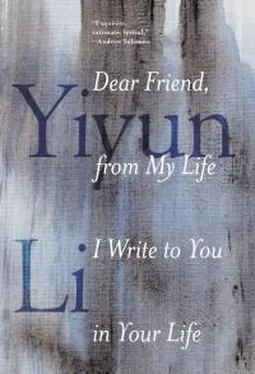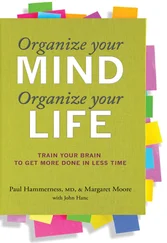21.
My father is the most fatalistic person I have ever known. He once admitted that he had not felt a day of peace in his marriage and expressed his regret that he had never thought of protecting my sister and me from our mother, who is a family despot, unpredictable in both her callousness and her vulnerability.
But the truth is, he tried to instill this fatalism in us because it was our only protection. For years I have been hiding behind that: being addicted to fatalism can make one look calm, capable, even happy.
22.
For a while I read Katherine Mansfield’s notebooks to distract myself. “Dear friend, from my life I write to you in your life,” she wrote in an entry. I cried when I read the line. It reminds me of the boy from years ago who could not stop sending the designs of his dreams in his letters. It reminds me too why I do not want to stop writing. The books one writes—past and present and future—are they not trying to say the same thing: Dear friend, from my life I write to you in your life ? What a long way it is from one life to another, yet why write if not for that distance, if things can be let go, every before replaced by an after.
23.
It’s not fatalism that makes one lose hope, I now understand. It’s one’s rebellion against fatalism; it’s wanting to have one’s time back from fatalism. A fatalistic person cannot be a dreamer, which I still want to become one day.
24.
“The train stopped. When a train stops in the open country between two stations it is impossible not to put one’s head out of the window and see what’s up,” Mansfield wrote at the end of her life. This is the inevitability of life. The train, for reasons unknown to us, always stops between a past and a future, both making this now look as though it is nowhere. But it is this nowhereness that one has to make use of. One looks out the window: the rice paddies and alfalfa fields have long been the past, replaced by vineyards and almond groves. One has made it this far; perhaps this is enough of a reason to journey on.
Amongst People
A heat wave was general all over Ireland the day I arrived in County Leitrim. Everyone I encountered—the border control officer, the woman who drove me across the country from Dublin, the hotel receptionist who handed me a bronze key with gold tassels—commented on the extraordinary weather. Shortly after I checked in, a county councilman and a photographer met me in the lobby, and they too started talking about the heat wave.
Children, unlike their elders, do not converse about weather. It is a fact to them, connected to the present only. Is it because weather can represent too much that it is often reduced to small talk? Weather gives experiences a place in time: a mood in which to inset a memory, a variable or a constant when comparing now and then. Two days later there would be a wedding at the hotel. Lucky bride, people said, as the good weather held, and I could see that it would be reminisced about for years to come.
In a corner store the photographer, a man in his sixties, asked for a betting ticket and three ice cream cones. I tried to decline, but he wouldn’t allow it—the ice cream cones were the best and only a euro each, he said. We then climbed over a brick wall that guarded a private dock. No trespassing, a sign warned. I want you to look as though you’re carried away by your reading, the photographer said, directing my position, legs dangling over the water, a book open in my lap, for which the ice cream cone was neglected. Now turn to me and smile, I want County Leitrim to see how happy our guest is. It was late May, and the ice cream melted fast. I watched it drip onto the wooden planks. Weather not forgotten is that which is lived through with effort.
Afterward I took a walk through town, past a few pubs, a florist’s, a betting shop painted blue. There were not many people in the street. Eventually I came to a local attraction the photographer and the councilman had insisted I visit. It was the smallest chapel in Ireland and said to be the second smallest in the world. Nevertheless, it had all the solemnity I imagined: stone facade, stained glass, marble altar, iron gate. The chapel was built for a Mary Costello by her husband after her death, and later he was laid to rest next to her. The thick opaque glass covering the two coffins was an unsettling yellow, and in between there was enough space for a visitor to turn around. I lingered because there was no other place I wanted to go in town, and I had been advised to avoid the isolation of my hotel room and seek out even the most basic human interactions.
My mind was in poor shape. The week before there had been the thought of admitting myself to a hospital, but Ireland had seemed more sensible. I traveled often during this time, as with every trip, there was the hope of returning a different person. Amid the unraveling I did not foresee the peril of misjudgment. The week after Ireland would end in an emergency room.
On the layover in the Amsterdam airport, I had caught a glimpse of myself unconscious on the floor of a freight elevator, the door of which had been left open. The thought was a comfort. One could die on a trip. I had been keeping a journal. If my mind was losing control, I wanted it to be a process that could be understood by words, but I did not record this moment in Amsterdam. I did not understand, nor did I want to, the encounter in the airport. The journal was—and remains—a long argument with myself: a lucid voice questioning judiciously, and a more forceful voice speaking defiantly, sometimes in reply, other times in digression. The experience is like a confrontation between George Eliot and Dostoyevsky. The former counsels self-restraint through self-improvement, and the latter interrupts with monologues on impassioned and imprisoned souls; when the latter strives to be coherent or even sincere, the effort, under the gaze of the former, seems ludicrous. One always knows how best to sabotage one’s own life.
Can one live without what one cannot have—the question appeared repeatedly in my journal. To say no was to give in; to say yes was surrender, too, though masked as bravado. What is it that cannot be had—this I avoided putting into words. Any explanation would be too specific and too small. But the understanding was never far from me.
Against my intuition I have formed attachments—to a few people, to a profession, to an adopted language—but I have yet to learn to live with them. Instead, the pain of being close to another person and the pain of isolation invalidate each other. To be able to write and to write in English are a lifeline, and a lifeline must be dismissed as extraneous, even illicit. Again and again my mind breaks at the same spot as though it is a fracture that never fully heals: I fear taking you—you, my life, and all that makes it worth living—seriously.
In Leitrim I did not run into the phantom seen in Amsterdam. Outside a bookshop I read a poster advertising a symposium on Rūmī. A laundromat had a handwritten note taped to the door, saying it would stay open only three days a week due to the recession. In the hotel lounge I sat with a pot of tea and counted passersby. A woman who reminded me of a friend prompted me to look up the name of an island off the coast of County Mayo, where her father had been buried on a rainy day, the coffin lowered into a foot of water. The tangible often possesses a kind of eloquence. Distractions bring momentary clarity.
—
THE TRIP WAS for a festival celebrating the Irish writer John McGahern. When the invitation came I could not claim much connection beyond admiration, but I wanted to visit the River Shannon and the country lanes in Leitrim and Roscommon. To see the setting of an autobiographical author is to hold fleetingly another person’s reality.
Читать дальше












